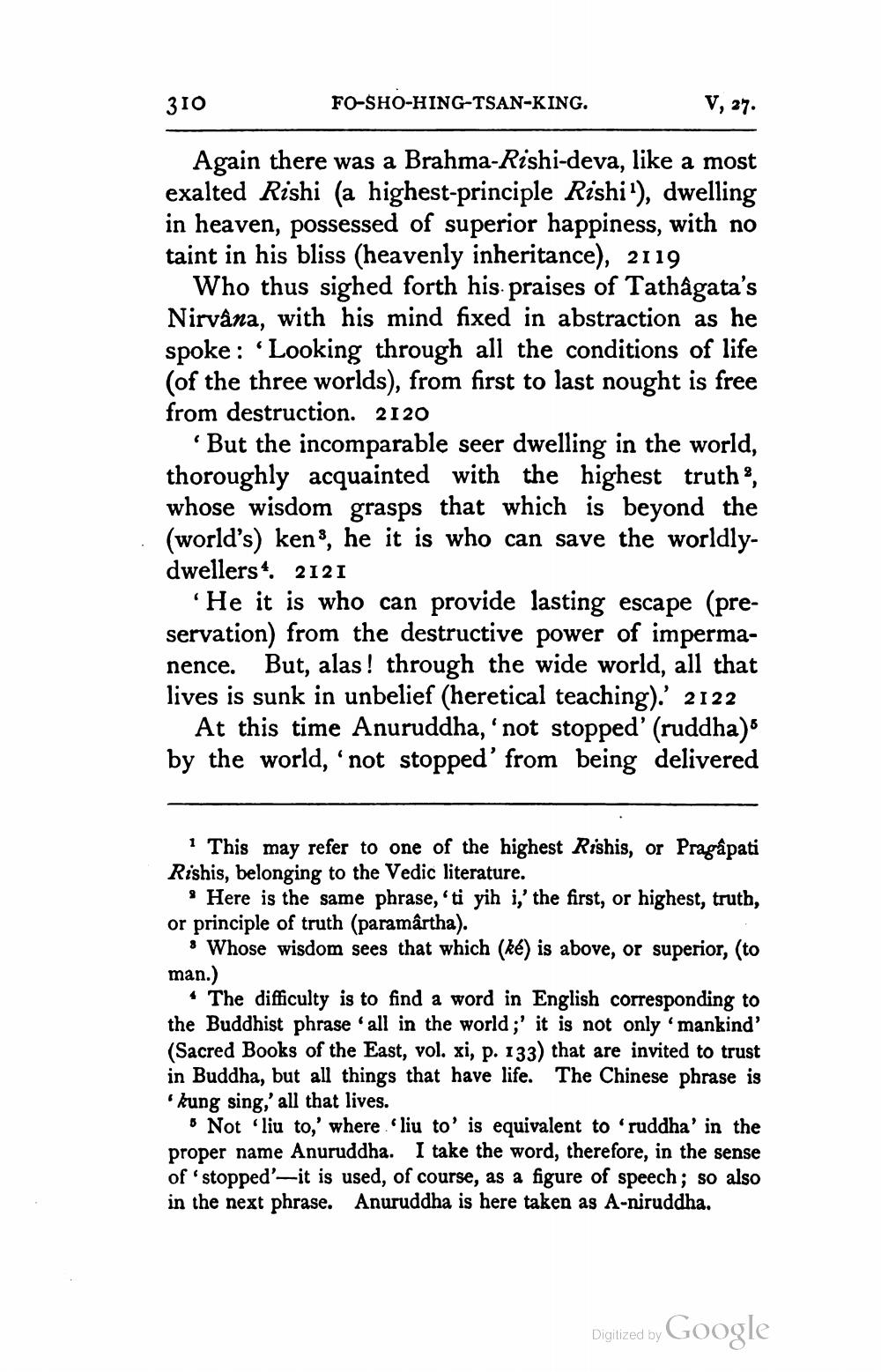________________
310
FO-SHO-HING-TSAN-KING.
V, 27.
Again there was a Brahma-Rishi-deva, like a most exalted Rishi (a highest-principle Rishi'), dwelling in heaven, possessed of superior happiness, with no taint in his bliss (heavenly inheritance), 2119
Who thus sighed forth his praises of Tathagata's Nirvana, with his mind fixed in abstraction as he spoke: 'Looking through all the conditions of life (of the three worlds), from first to last nought is free from destruction. 2120
But the incomparable seer dwelling in the world, thoroughly acquainted with the highest truth, whose wisdom grasps that which is beyond the (world's) kens, he it is who can save the worldlydwellers 4 2121
He it is who can provide lasting escape (preservation) from the destructive power of impermanence. But, alas! through the wide world, all that lives is sunk in unbelief (heretical teaching).' 2122
At this time Anuruddha,'not stopped' (ruddha) by the world, 'not stopped' from being delivered
This may refer to one of the highest Rishis, or Pragậpati Rishis, belonging to the Vedic literature.
Here is the same phrase, 'ti yih i,' the first, or highest, truth, or principle of truth (paramârtha).
o Whose wisdom sees that which (ké) is above, or superior, (to man.)
• The difficulty is to find a word in English corresponding to the Buddhist phrase "all in the world;' it is not only 'mankind' (Sacred Books of the East, vol. xi, p. 133) that are invited to trust in Buddha, but all things that have life. The Chinese phrase is *kung sing,' all that lives.
Not liu to,' where. liu tо' is equivalent to 'ruddha' in the proper name Anuruddha. I take the word, therefore, in the sense of stopped'-it is used, of course, as a figure of speech; so also in the next phrase. Anuruddha is here taken as A-niruddha.
Diglized by Google




